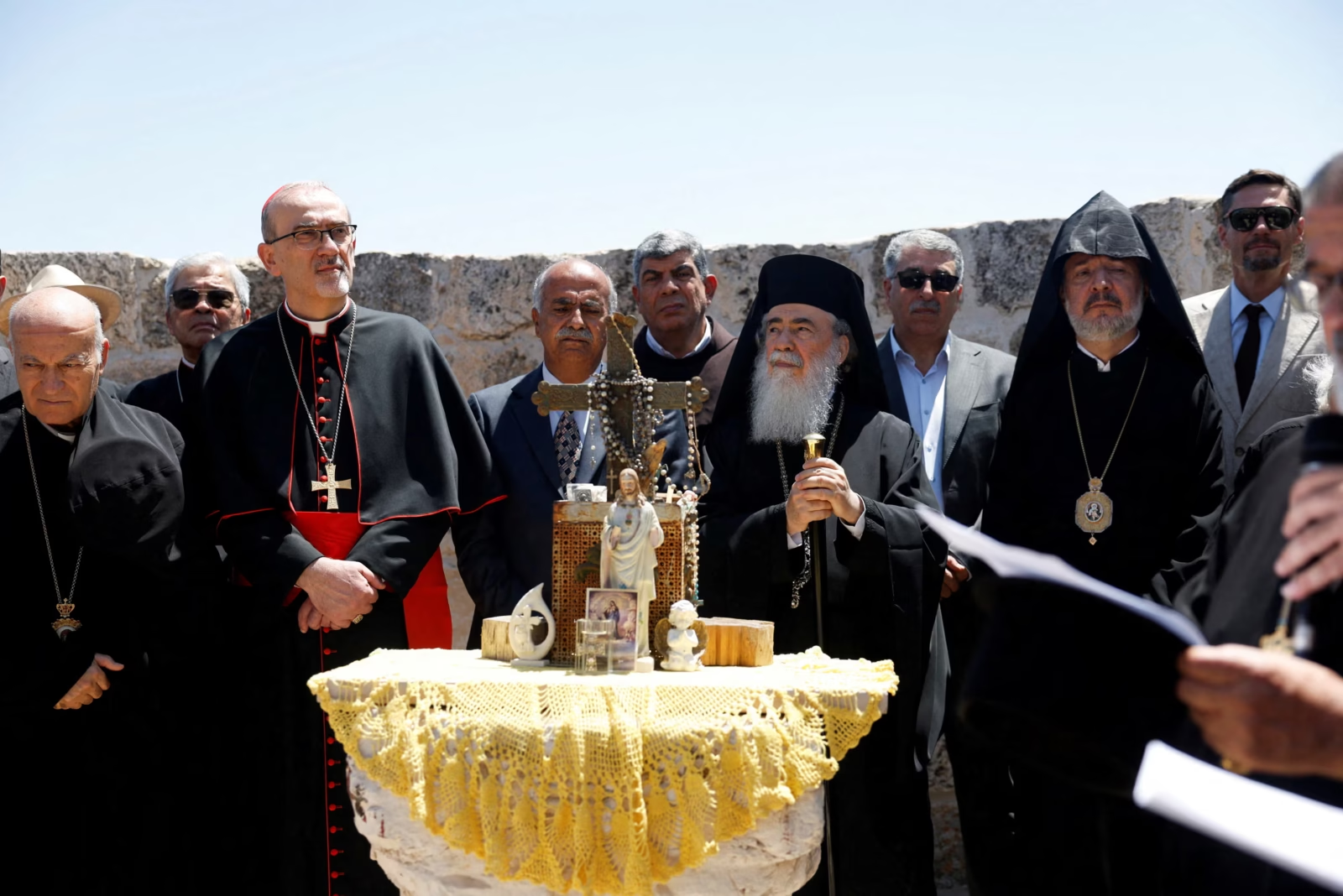Violent attacks on Christians in Israel and the occupied Palestinian territories are drawing growing concern, as incidents targeting churches, pilgrims, and local communities become increasingly common. Human rights groups say the trend highlights not only rising religious intolerance but also a deeper political climate where extremism is left unchecked.
In the West Bank, the Christian village of Taybeh has repeatedly come under assault from Jewish settlers, who allegedly use arson as a tool to force residents from their homes. In Gaza, reports indicate that an Israeli tank recently fired on the Holy Family Church, where dozens of civilians had sought refuge. The strike killed three people, underscoring how the Christian minority is also caught in the devastating conflict.
Jerusalem, a city sacred to three major faiths, has seen its own share of harassment. Christian tourists visiting holy sites have reported being spat on, threatened, or having religious symbols stolen by Jewish extremists. Native residents in the Old City say such incidents are far from isolated. On June 2, CCTV footage captured a group of Israeli men spitting at the entrance of the Armenian convent—an act local leaders say reflects the daily hostility faced by Christian communities.
What worries many observers is the apparent inaction of Israeli authorities. According to Yisca Harani, director of the Religious Freedom Data Center, most complaints filed about anti-Christian harassment are quietly closed by police without serious investigation. Critics argue that this reluctance to enforce accountability not only emboldens extremists but also risks further damaging Israel’s standing at a time when religious freedom is already under scrutiny worldwide.
Analysts warn that the persistence of such attacks feeds into broader geopolitical narratives—fueling tensions with the Vatican, straining Israel’s ties with Christian-majority allies, and complicating its diplomatic posture at a time of deepening global criticism over the war in Gaza. The targeting of Christian communities, they say, adds yet another layer to the region’s fragile religious and political landscape.












Leave a comment